AARP Hearing Center
Home & Living
Portraits From the LA Wildfires:
Older Adults Face Loss, Uncertain Futures
but Still Find a Glimmer of Hope
Our photographer captured the faces of those whose homes, retirement dreams and keepsakes have gone up in smoke
By Michelle R. Davis and Gregg Segal
Published January 15, 2025 | EN ESPAÑOL
When Totress Beasley’s house burned in Los Angeles’ Eaton fire in January, the close-to-retirement city employee had just finished paying off the mortgage. At the home of Laura Parker, 65, the wildfire turned a lifetime of memories — including her childhood teddy bear — into ashes.
For many older adults in the Los Angeles area, wildfires have incinerated retirement dreams and brought financial hardship, health challenges and loneliness.
Wildfires have continued to blaze through the area. The Hughes fire in northern LA and Ventura counties has forced more than 50,000 people to evacuate. Earlier in January, the Eaton and Palisades fires destroyed more than 12,000 structures and killed at least 27 people, many of them older adults, who tend to account for a higher percentage of the dead and injured when natural disasters strike.
Photographer Gregg Segal, 60, who lives in Altadena and evacuated when the wildfires crept toward his home, captured portraits of older Angelenos as they try to work through their suddenly changed realities.
Retirement feels uncertain now
For years, Beasley scrimped and saved to pay off her three-bedroom house in Pasadena with the orange trees in the back and the owl that hooted at night. She didn’t want to worry about a mortgage in retirement, which she hopes is just a few years away. On Jan. 7, her final house payment went through. On Jan. 8, her house burned.
A few melted walls remain, but no floor, no roof — all of her possessions are just ashes. She’s staying in a hotel paid for by her church and may move in with her son, who lives in Pasadena. Beasley, who doesn't want to reveal her age but says she’s over 50, plans to rebuild, but she worries about what her future might look like. “I’ve been working since I was 16 and my goal was to pay off the house and retire,” she says. “I’m not sure what my retirement will be now.”
She looked forward to stopping the daily grind and trying new things. “I want to enjoy life and live without having to get up and go to work at 6:30 in the morning,” she says.
She hopes her insurance will cover the damage and that retirement might still be on the horizon. Her orange trees survived the flames. And maybe she’ll hear the owl again soon.
A commitment to community
Every day since his house burned down Jan. 8, David Gutierrez goes back twice a day — morning and afternoon — to look at the ashes and rubble in the Altadena neighborhood where he raised his sons. Memories of parties and gatherings there with family and friends, not so long ago, now seem like a different lifetime.
Gutierrez, 56, a landscaper, tried to save his home using a garden hose, but when the palm trees near his house went up in flames, embers swirled and the house burned to the ground.
By nature, Gutierrez is an optimist. He wants to rebuild the place he lived in for 23 years. He says he still loves his community and California, where he settled decades ago after moving from his native Mexico. “I feel like this is still my place,” he says, “even in ashes.”
The family is staying at another property Gutierrez owns — the office for his landscaping business — and he plans to invite others who are displaced to join them. He’s already figuring out how to put in working showers and add new drywall and insulation to make the office more livable. But his wife is grieving over the loss of their home. “My wife, she’s crying every day. But I say, ‘Don’t worry, you’re alive, the kids are OK,’ ” he says.
Retirement chores may have saved his house
When Kevin Young went to check on his property Jan. 9 after being evacuated in the wee hours of the morning the day before, he didn’t recognize his own Altadena neighborhood. It looked like a “war zone,” he says, with debris everywhere and rubble where houses once stood.
The house on two acres was still standing and Young did what he could to prevent the floating embers from starting a fire. But when two nearby homes burst into flames within 20 minutes of each other, he decided it was time to leave.
The area is blocked off now, but Young is optimistic that his house survived because of the special care he’s taken landscaping his property. With more time on his hands after retiring from a career managing parts and services departments for car dealerships, he spent many hours trimming the trees, keeping the weeds down, and removing dry brush that could catch fire. “It’s much better than any gardener that I’ve ever paid for,” he says. “It’s minimized and clean.”
He's waiting for the time he can get back to see if his home is still there.
‘An invitation to live a simpler life’
The house that Laura Parker, 65, and her husband, Branislov Kecman, 63, lived in for more than a decade contained a lifetime of memories — her first teddy bear, handmade books that her mother, a writer who is now 93, created, a Steinway grand piano, original artwork.
Now, it’s all rubble after a wildfire swept through on Jan. 7. “It’s like a moonscape,” she says of the photos she’s seen of the place where her house once stood.
Even more devastating is the loss of her life’s work as a photographer: thousands of photographs and camera equipment. Her only salvation: A tiny portion of her work was at an off-site storage site.
She’s trying to see the silver lining, but it’s hard. “This is an invitation to live a simpler life. I had accumulated a lot over my 65 years,” she says. “Everything has been radically erased.”
She wants to rebuild a cutting-edge, fire-resistant house where her old house once stood. “I’d like to have a lighter footprint on the Earth and move around more easily,” she says. “I want to be unburdened.”
Living in a state of limbo
Anita Finnegan, 66, doesn’t know where she’ll end up. After the fire raged through the place she was renting, she’s sleeping on a cot at the wildfire evacuation center set up at the Pasadena Convention Center. But what comes next is a mystery. “I don’t have a clue,” she says. “I’m in a state of limbo.”
Five days after her house burned down, Finnegan was getting some help outside the convention center: a free cellphone, some clothes and food. Finnegan is a diabetic, so she was trying to track down some insulin.
But her health issues make a difficult situation even harder. She uses a wheelchair, and over the years has weathered leukemia, a bone marrow transplant, the loss of her husband and now the wildfires.
Her car was burned so she can’t get around, but friend Luz Hopping was trying to help. “She doesn’t have nothing,” Hopping says. “Just what she’s wearing.”
Community comes into play
There aren’t many places to stay now that whole neighborhoods have burned. So Allan Wasserman, 72, and Amy Weliky, 73, feel lucky. They’re “squatting,” Weliky says, in a guesthouse on the property of friends, who have said they can stay as long as they want.
Wasserman and Weliky fled their house with their dog, Murray, on Jan. 7, even before the evacuation warning came, because a younger neighbor came to alert them to nearby flames. It gave them a few extra minutes to pack some belongings.
After they evacuated, houses on their street and the street behind them burned, and so did their own guesthouse, which served as an art and music studio, though their house is still standing. Weliky is a retired hand therapist and an artist. Wasserman is a retired stockbroker and an actor and musician who still plays saxophone in a band.
Half of their artwork and music paraphernalia was destroyed, but they’re trying to stay positive. “You can’t dwell on what isn’t there anymore,” Weliky says. “I just have to let it go.”
The community they’ve built up over decades has come out to support them. Neighbors checked on them; their rabbi showed up, manning a garden hose to fight the fire; friends offered places to stay. Wasserman has met up with his dog-walking friends to process the disaster. “As soon as they let us back in, I’m going to go up there and there will be a massive cleanup,” Wasserman says. “If I put out a call, the cavalry will come.”
A difficult situation at an older age
For the past 15 years, Bill Threadgill, 62, has been a caregiver for a 73-year-old woman he befriended who had no relatives nearby. “I’m the only person she has,” he says. She is “family” to him, and he shared her Altadena home while he worked as a handyman and also provided care.
Before fire rushed through the home on Jan. 8, Threadgill had already taken the woman to an evacuation center for safety. But the house burned to the ground, taking with it a lot of memories: wedding photos, pictures of his son, collectibles, items that reminded Threadgill of his mother.
He’s staying with a friend but is unsure where he’ll go. He says it’s harder to deal with this type of crisis as an older person. “You’re not able to be as resilient and physically able to do a lot of stuff, like when you’re younger,” he says. “But I have family, so they will come in and help keep me strong.”
Helping children understand
Suzan Young’s Altadena house burned down Jan. 8, but a week later, she still hadn’t shed a tear. She had to find a car (hers was destroyed), reach out to the insurance company, find clothes and so many other things. “I don’t have time to cry,” she says. “There’s so much to do.“
But Young, who said she is over 50, is concerned about how her two sons Nick, 18, who has autism, and David, 15, are processing the losses of their childhood home, all their possessions and their neighborhood. “I hope they see me as strong and not insensitive,” she says. “I want to be there for them, but I also want them to know we’re luckier than a lot of people.”
Another thing she wants them to know: it’s ok to accept help right now. A friend set up a GoFundMe to raise money for the family. Someone offered to take her son shopping. “We’ve always taught them to be kind to others, and we’ve done a lot for other people,” she says. “It’s our turn to receive. It’s ok to receive right now.”
Michelle Davis is an executive editor for AARP. Previously, she was the senior writer and social media strategist for EdWeek Market Brief and a senior correspondent at Education Week.
Gregg Segal is an award-winning photographer and writer whose work has appeared in publications including AARP The Magazine, Time, Newsweek, National Geographic Adventure and others.


































































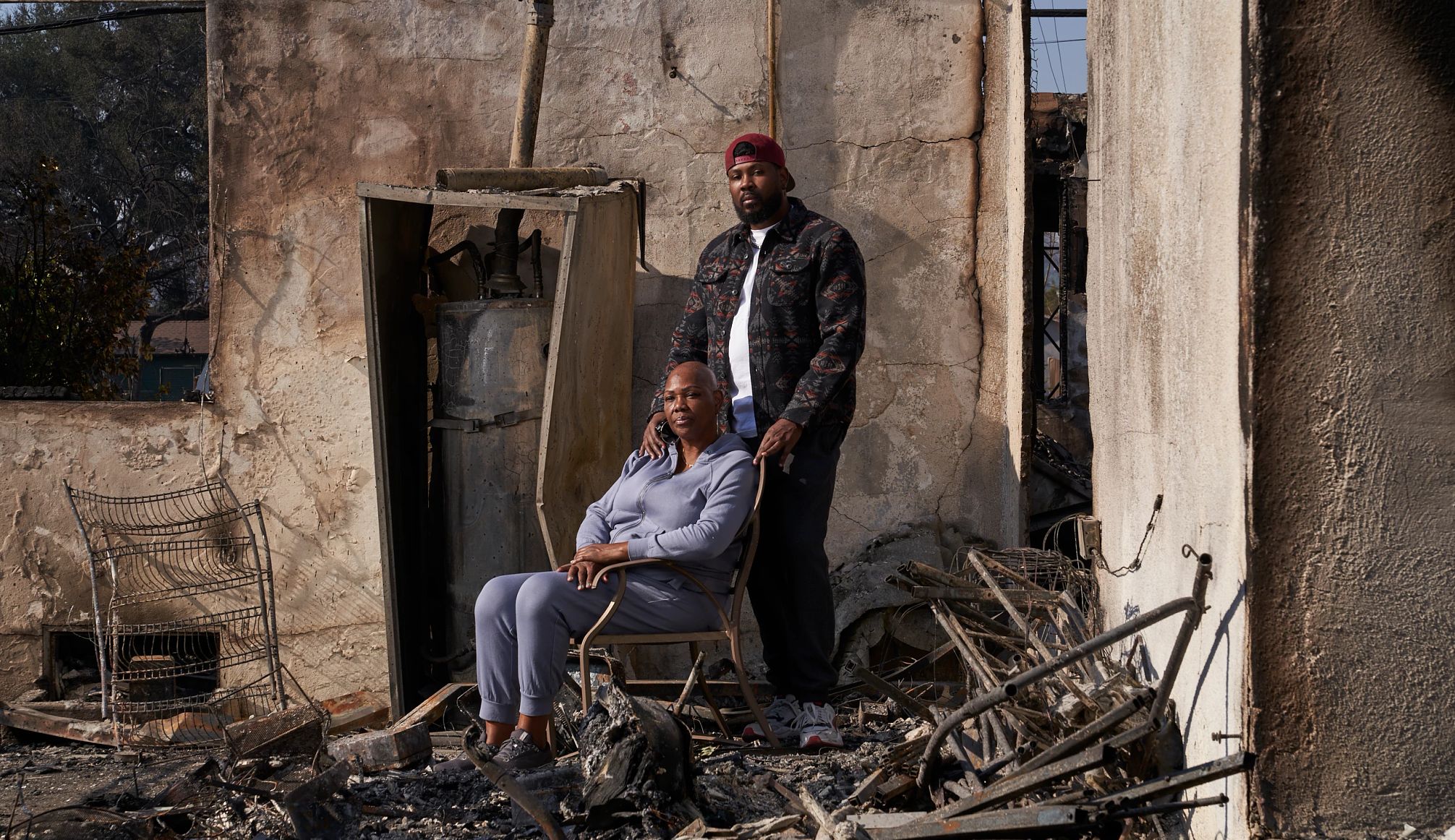
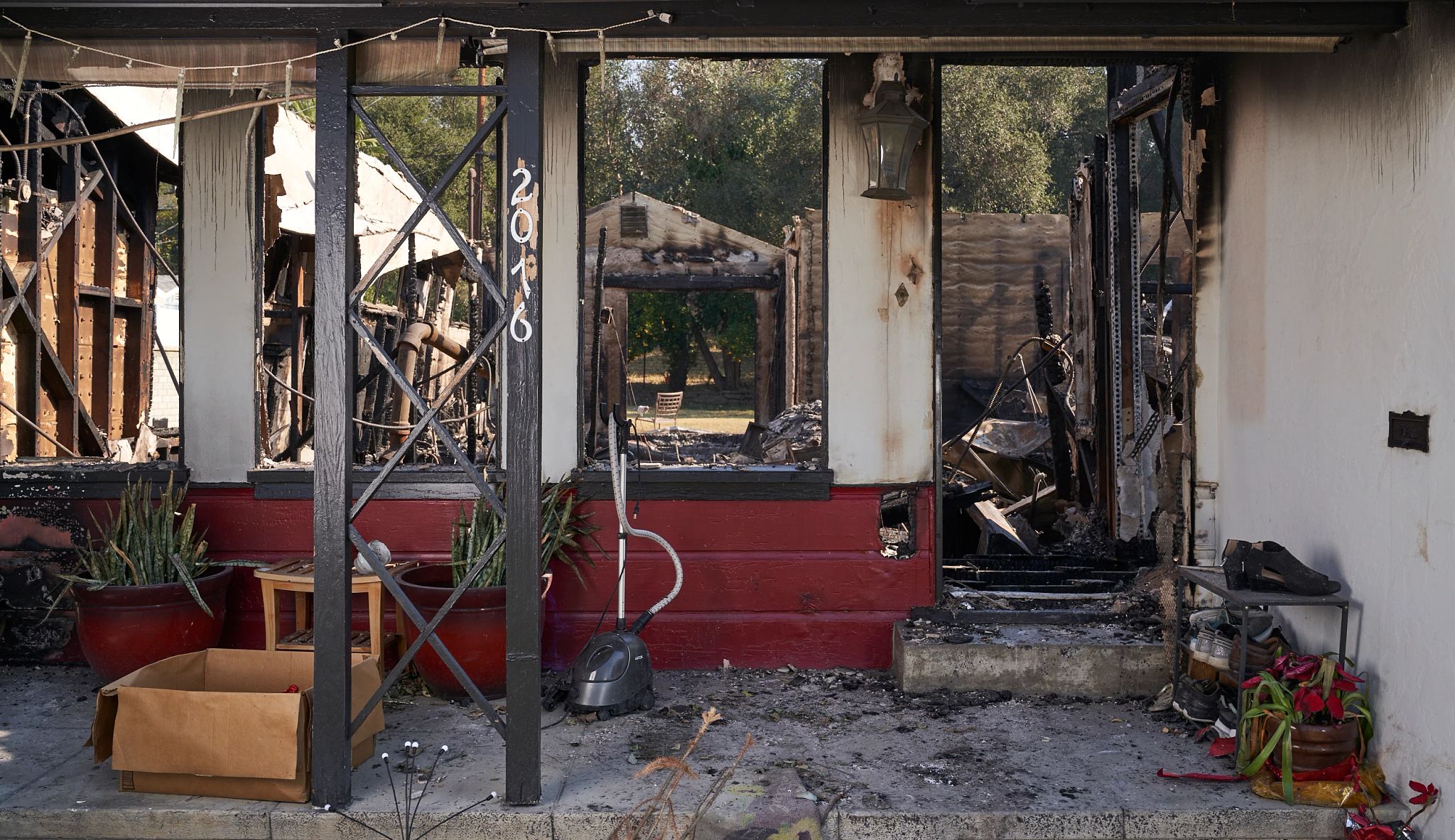
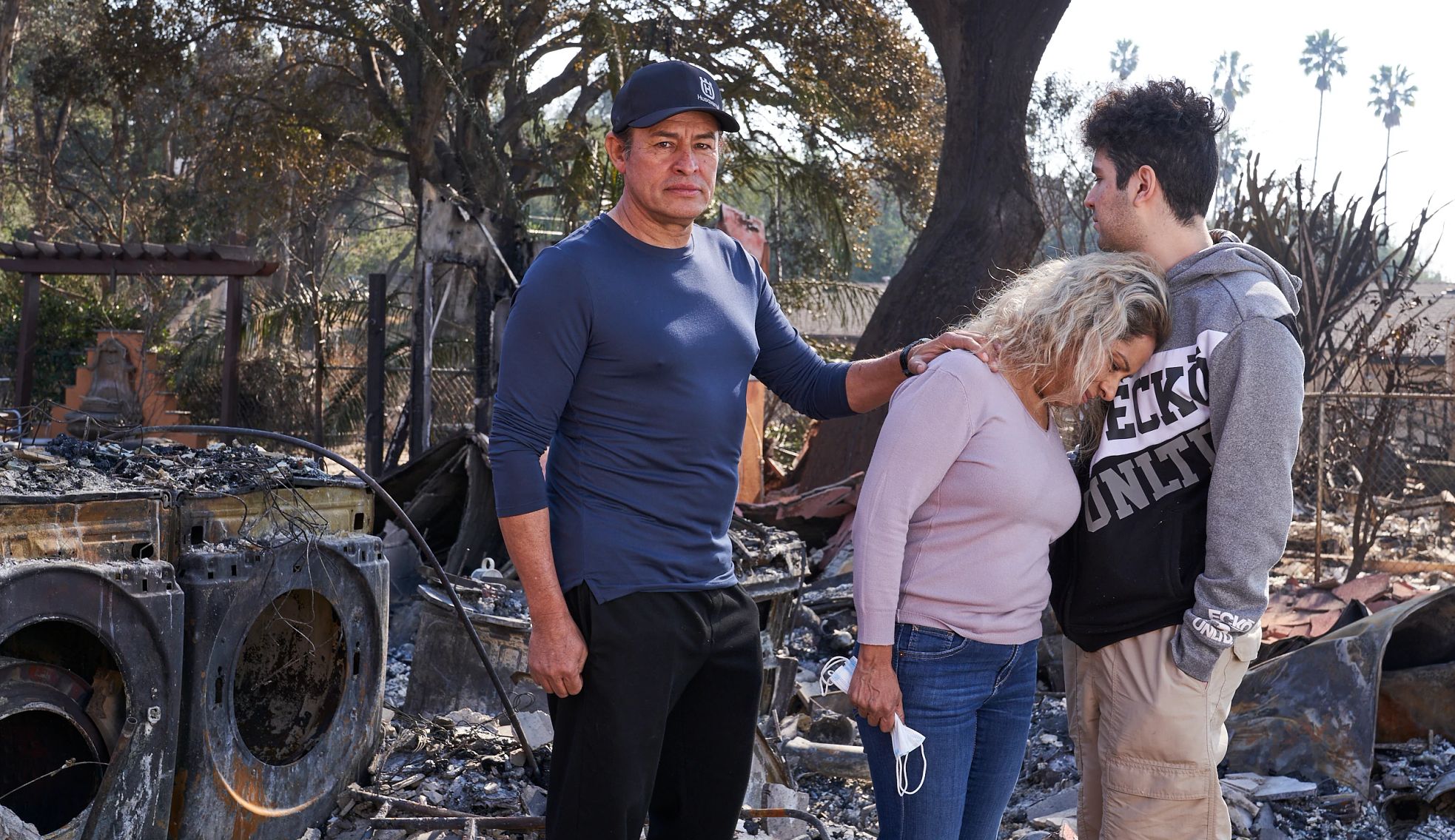
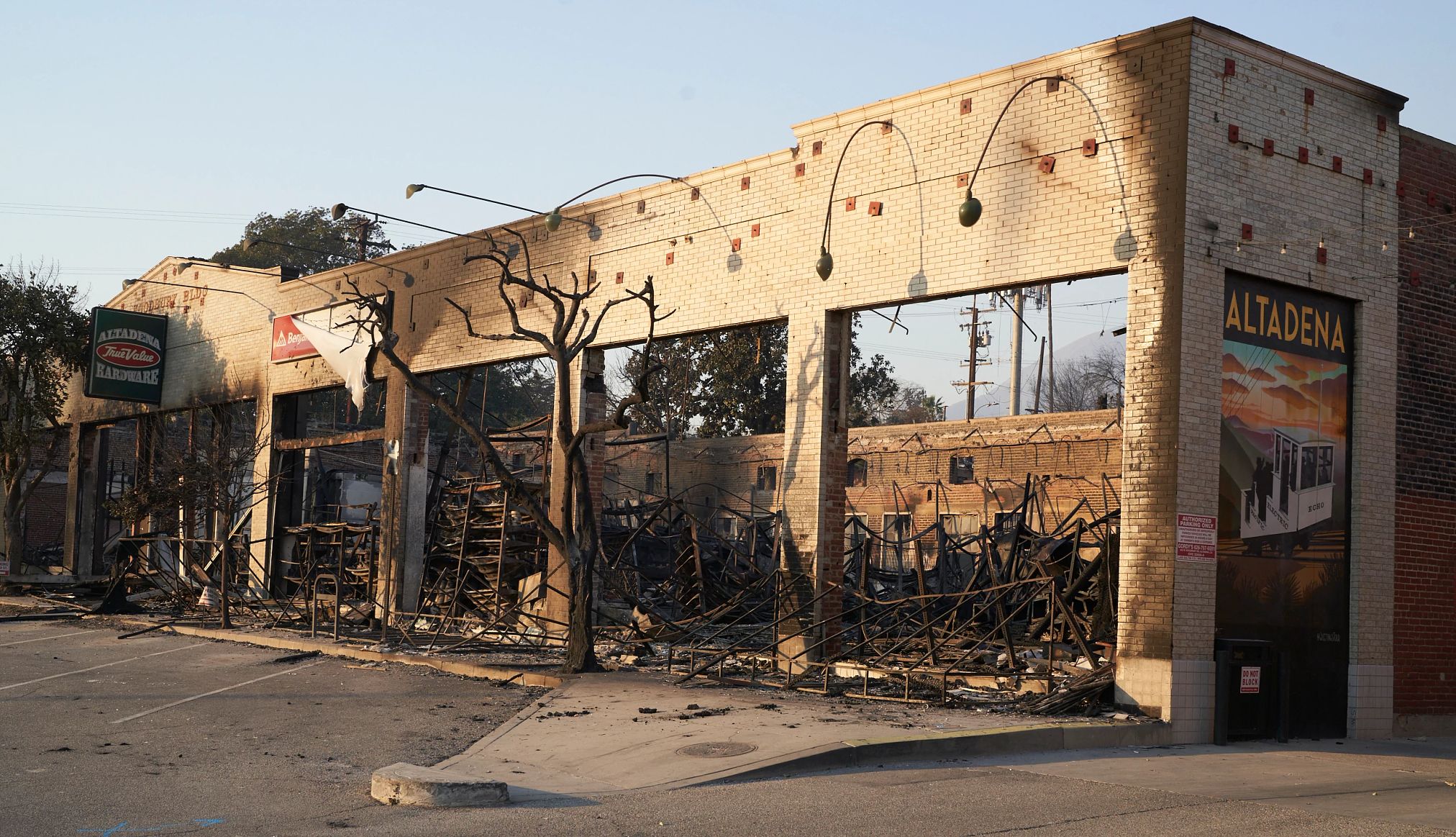
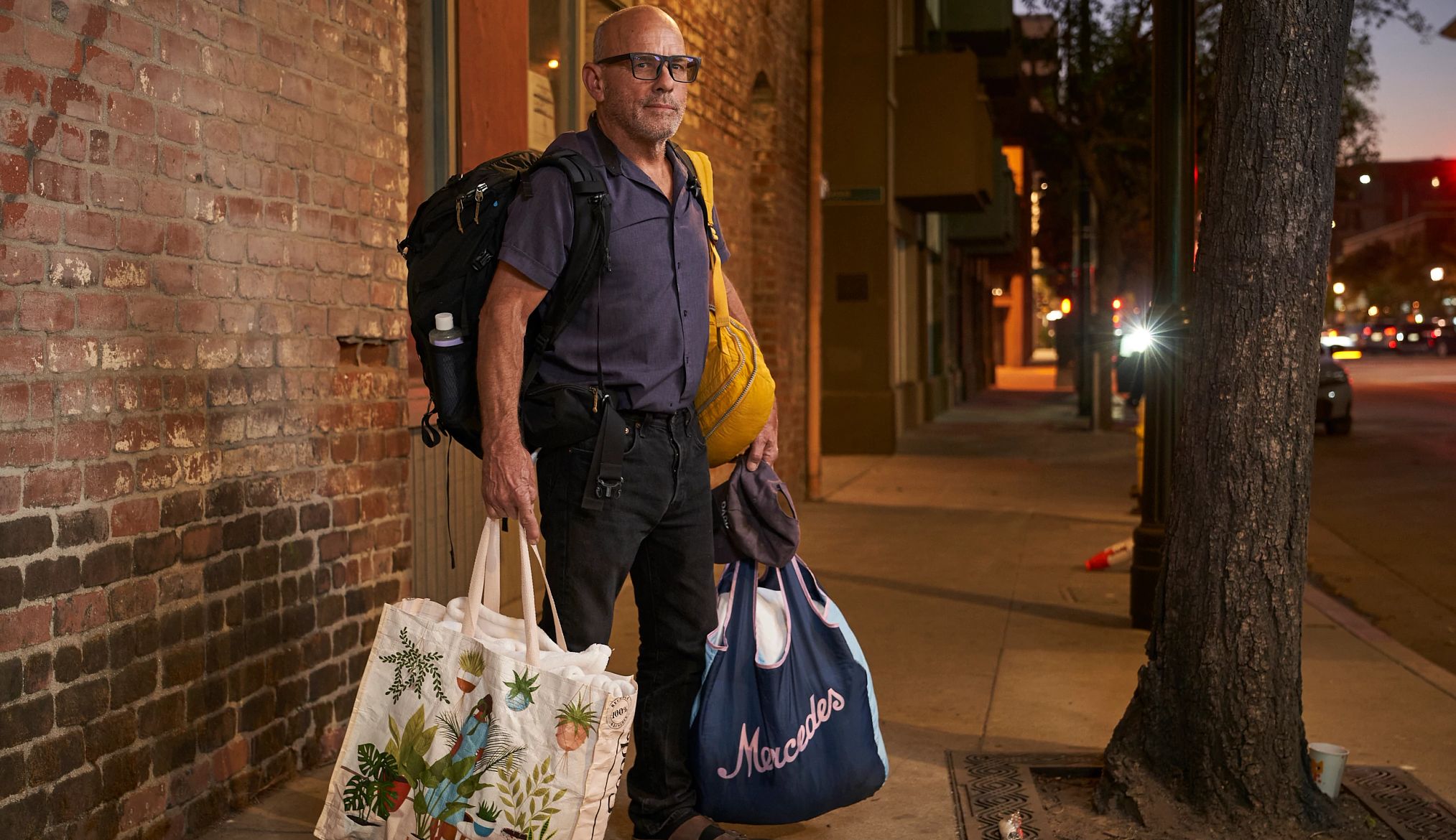
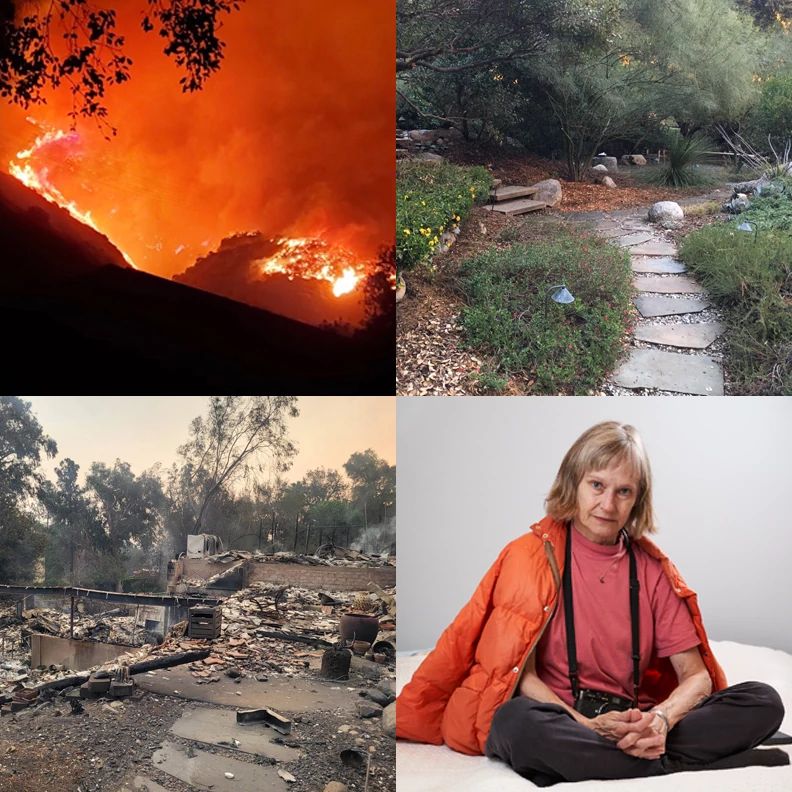
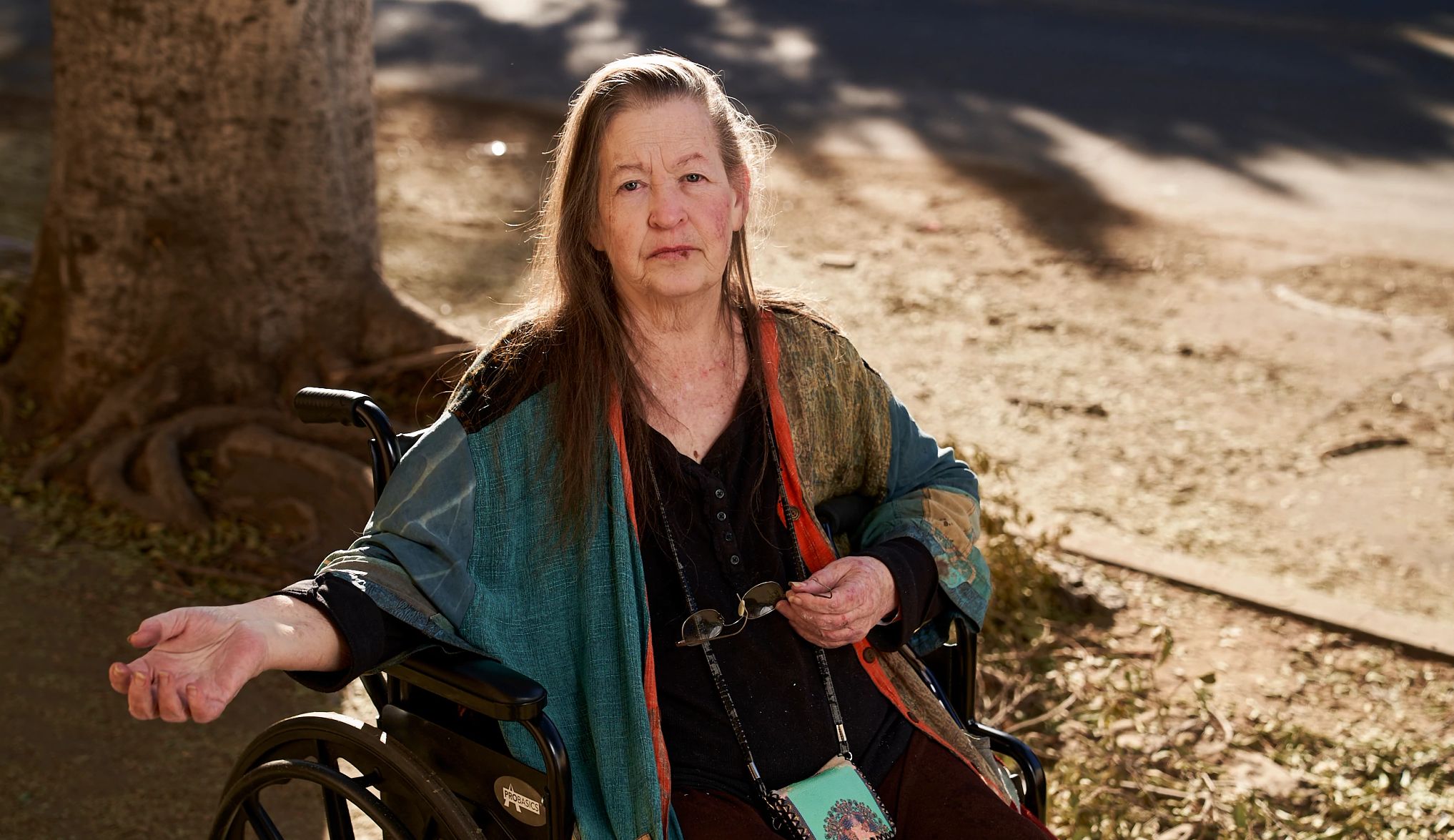
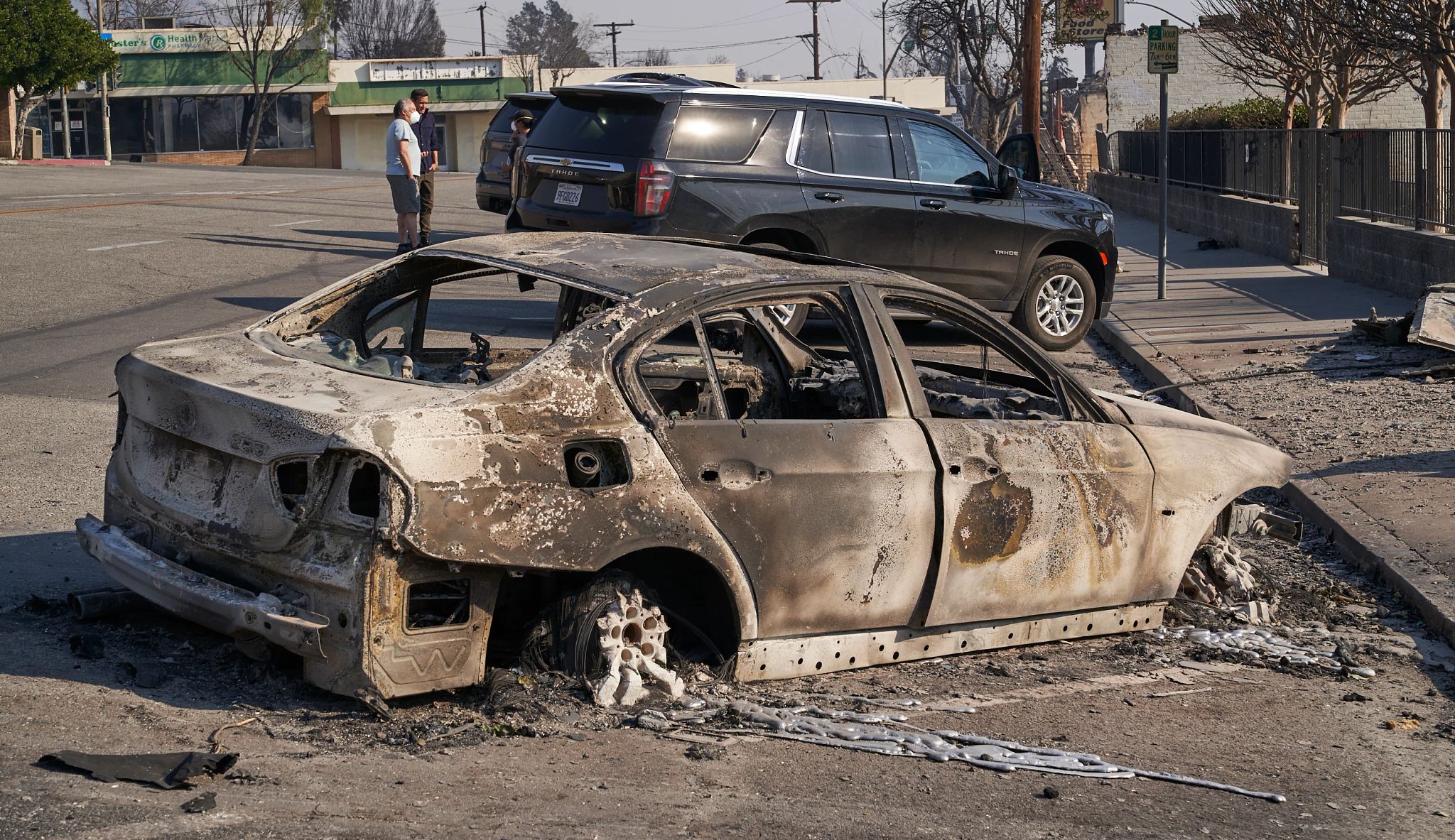
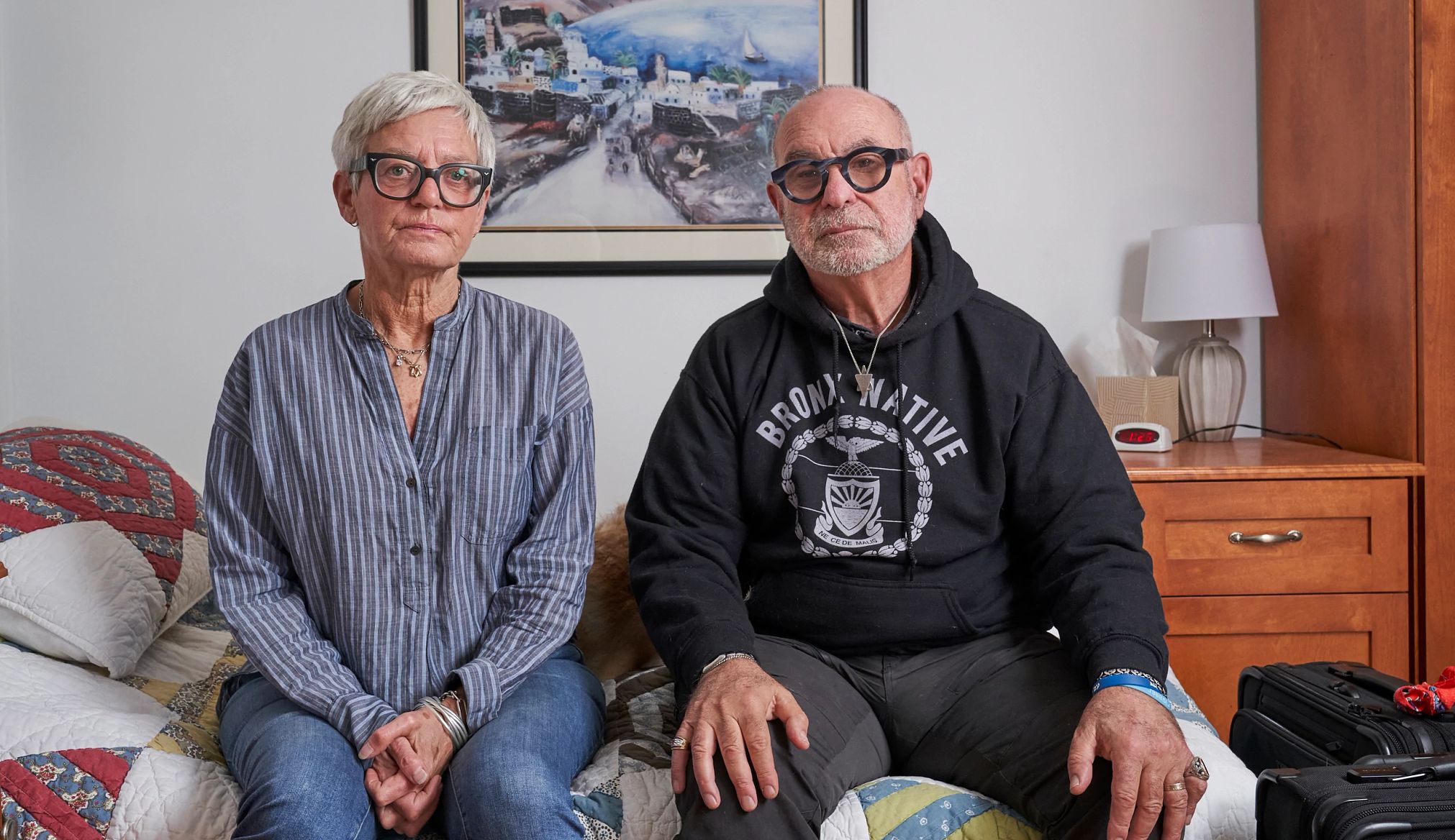
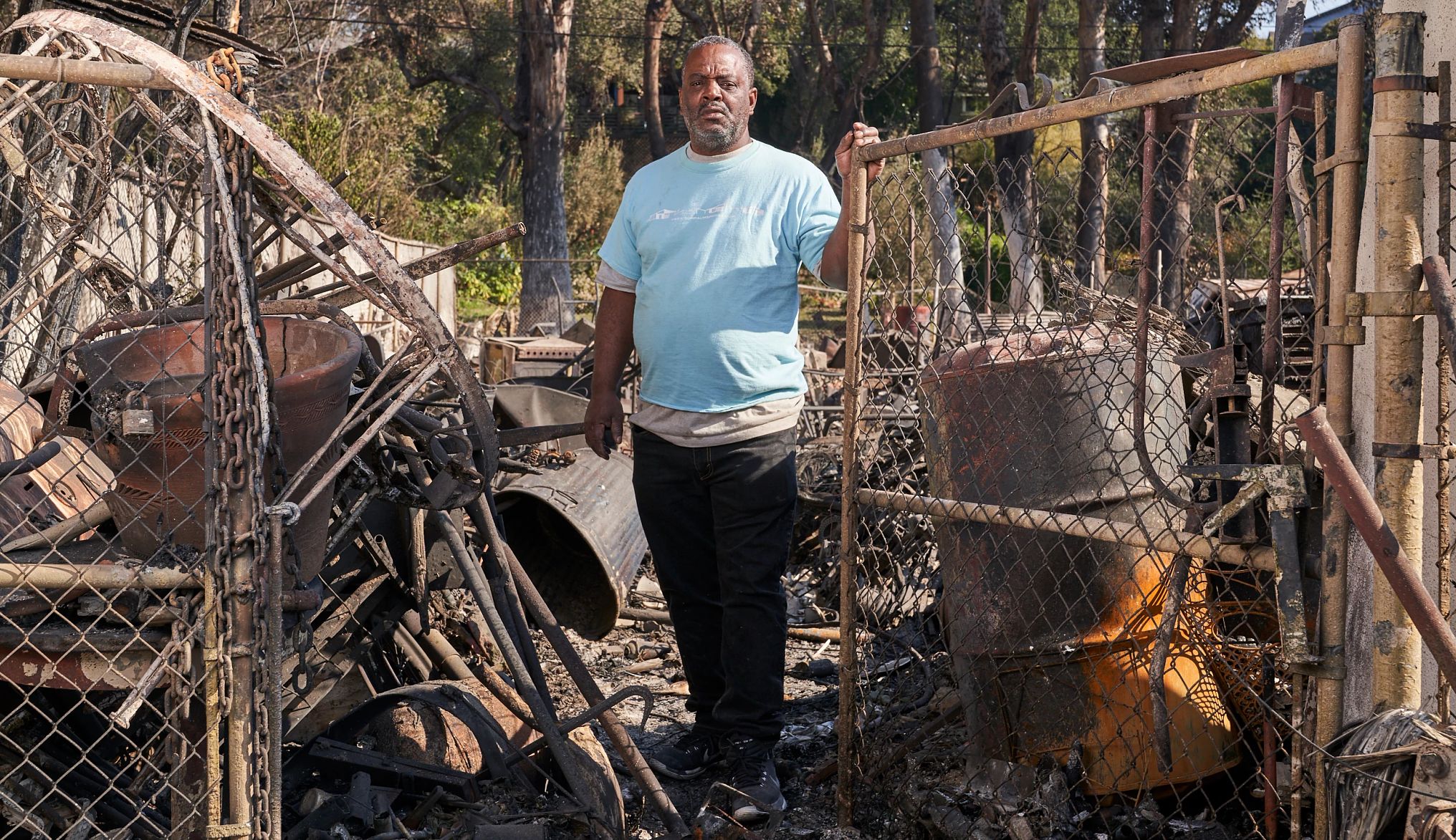
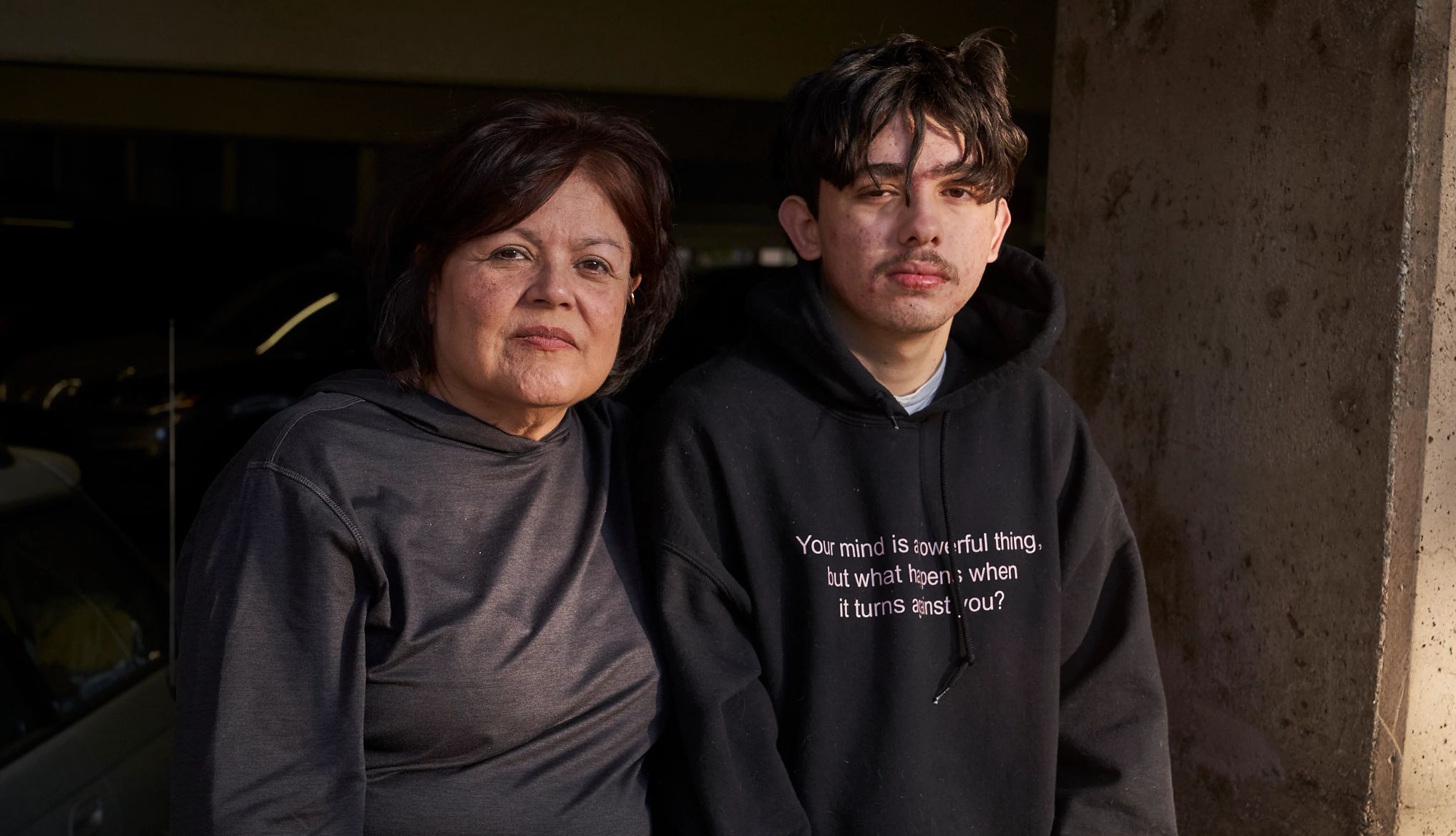
More on Los Angeles Wildfires
LA Fires: How to Get Information and Resources
Government, nonprofit and other resources that bring help to those impacted
What To Do If a Loved One Is Evacuated From a Nursing Home
Wildfires have forced hundreds of vulnerable Californians out of care facilities
Essay: I Was All Alone Fleeing the LA Fires. Would Anyone Take Me In?
Deciding what to bring with him was hard enough. But then, would anyone take him in?
Essay: We Moved to Los Angeles for the Chiller Vibe. And Then the Fires Hit
Beautiful home, wonderful friends. Will LA continue to be the dreamland they hoped for?
Recommended for You